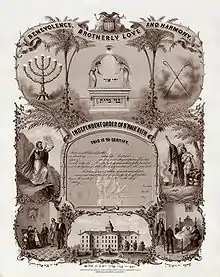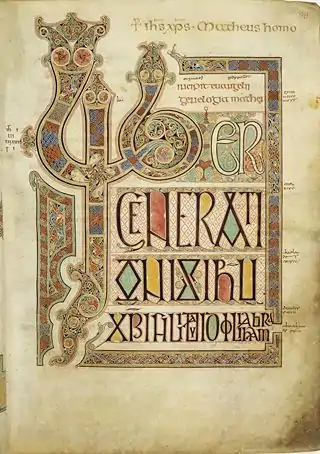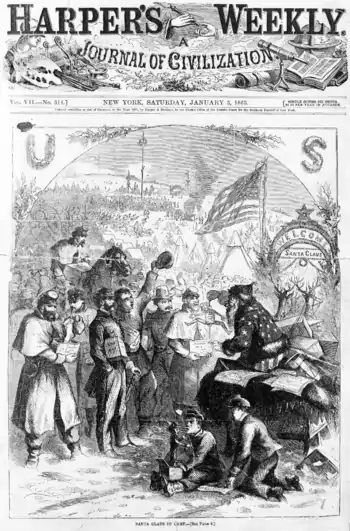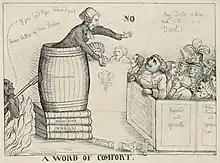The Religion Portal
Religion is a range of social-cultural systems, including designated behaviors and practices, morals, beliefs, worldviews, texts, sanctified places, prophecies, ethics, or organizations, that generally relate humanity to supernatural, transcendental, and spiritual elements—although there is no scholarly consensus over what precisely constitutes a religion. Different religions may or may not contain various elements ranging from the divine, sacredness, faith, and a supernatural being or beings.
Religious practices may include rituals, sermons, commemoration or veneration (of deities or saints), sacrifices, festivals, feasts, trances, initiations, matrimonial and funerary services, meditation, prayer, music, art, dance, or public service. Religions have sacred histories and narratives, which may be preserved in sacred texts, symbols, and holy places, that primarily aim to give life meaning. Religions may contain symbolic tales that may attempt to explain the origin of life, the universe, and other phenomena; some followers believe these to be true stories; others regard them as myth. Traditionally, both faith and reason have been considered sources of religious beliefs.
There are an estimated 10,000 distinct religions worldwide, though nearly all of them have regionally based, relatively small followings. Four religions—Christianity, Islam, Hinduism, and Buddhism—account for over 77% of the world's population, and 92% of the world either follows one of those four religions or identifies as nonreligious, meaning that the remaining 9,000+ faiths account for only 8% of the population combined. The religiously unaffiliated demographic includes those who do not identify with any particular religion, atheists, and agnostics, although many in the demographic still have various religious beliefs.
Many world religions are also organized religions, most definitively including the Abrahamic religions Christianity, Islam, and Judaism, while others are arguably less so, in particular folk religions, indigenous religions, and some Eastern religions. A portion of the world's population are members of new religious movements. Scholars have indicated that global religiosity may be increasing due to religious countries having generally higher birth rates.
The study of religion comprises a wide variety of academic disciplines, including theology, philosophy of religion, comparative religion, and social scientific studies. Theories of religion offer various explanations for its origins and workings, including the ontological foundations of religious being and belief. (Full article...)
 Vital article
Vital article
Moses (/ˈmoʊzɪz, -zɪs/) is considered the most important prophet in Judaism and one of the most important prophets in Christianity, Islam, the Druze faith, the Baháʼí Faith, and other Abrahamic religions. According to both the Bible and the Quran, Moses was the leader of the Israelites and lawgiver to whom the authorship, or "acquisition from heaven", of the Torah (the first five books of the Bible) is attributed. (Full article...)
 Did you know (auto-generated)
Did you know (auto-generated)
- ... that the nonconformist minister Ichabod Chauncey was banished from England under the Religion Act 1592 and spent two years in exile in Holland where he published a defence of his actions?
- ... that Freedom of Religion South Africa filed an unsuccessful lawsuit to keep child spanking legal?
- ... that a religious community is a group of people who practice the same religion, but do not have to live together?
- ... that religious studies scholar C. Jouco Bleeker believed that religions are like acorns?
- ... that Gamaliel's principle has been used to support religious pluralism and reforms within religious groups?
- ... that the investigations of Scandinavian place names by Magnus Olsen were instrumental in restoring confidence in Icelandic literature as a useful source for information on Old Norse religion?
 Featured pictures
Featured pictures
 Related portals
Related portals
 Featured article
Featured article
"Trapped in the Closet" is the twelfth episode in the ninth season of the American animated television series South Park. The 137th episode of the series overall, it originally aired on Comedy Central in the United States on November 16, 2005. In the episode, Stan joins Scientology in an attempt to find something "fun and free". After the discovery of his surprisingly high "thetan levels", he is recognized as the reincarnation of L. Ron Hubbard, the founder of the church. The episode was written and directed by series co-creator Trey Parker, who was credited as John Smith. (Full article...)
Top 10 WikiProject Religion Popular articles of the month
 Subcategories
Subcategories
Topics
 Get involved
Get involved
Associated Wikimedia
The following Wikimedia Foundation sister projects provide more on this subject:
-
 Commons
Commons
Free media repository -
 Wikibooks
Wikibooks
Free textbooks and manuals -
 Wikidata
Wikidata
Free knowledge base -
 Wikinews
Wikinews
Free-content news -
 Wikiquote
Wikiquote
Collection of quotations -
 Wikisource
Wikisource
Free-content library -
 Wikiversity
Wikiversity
Free learning tools -
 Wiktionary
Wiktionary
Dictionary and thesaurus
-
 List of all portals
List of all portals -

-

-

-

-

-

-

-

-

-
 Random portal
Random portal -
 WikiProject Portals
WikiProject Portals




.jpg.webp)
.jpg.webp)



.jpg.webp)















.jpg.webp)


_-_Google_Art_Project.jpg.webp)









.jpg.webp)







_-_Sv._Mikul%C3%A1%C5%A1.jpg.webp)


.jpg.webp)